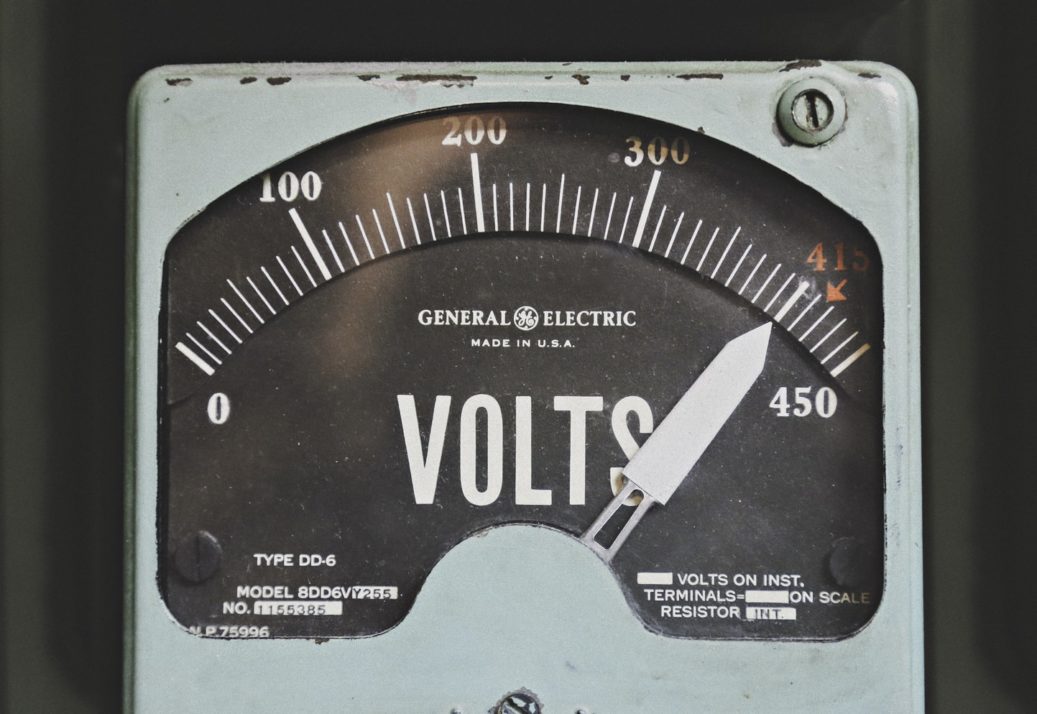What comes to mind when you think about power?
Is it Putin, Trump, Jeff Bezos, or anyone else on the Forbes list of most powerful people? Or maybe it’s Spiderman because of that infamous phrase from the movie, “With great power comes great responsibility.”
Here’s the interesting thing about power. If you don’t have it, you know it. If you have it—and it’s not gotten to your head—you’re never completely certain what to do with it. And if you need it, there never seems to be enough of it.
Power is one of those hot topics that seem to constantly be in the headlines, whether it’s the recent change of power in Afghanistan, the latest scandal of a celebrity who thought the rules didn’t apply to them, or the recent news article that called the last Canadian election “a blatant attempt at a power grab amid the fourth wave of the pandemic,”1 as humans, we seem to be obsessed with power.
Over one hundred years ago, the American historian, Henry Adams described power as “a sort of tumor that ends up killing the victim’s sympathies.”2 As Abraham Lincoln’s ambassador to the UK, I guess he saw lots of pride and hubris from the people of power that he rubbed shoulders with. And while that was just a metaphor describing the shaping influence that power has on an individual, recent brain science shows that he wasn’t that far off from the truth.
Sukhvinder Obhi, a neuroscientist at McMaster University, discovered that power affects the human brain and impairs empathy. More specifically, he discovered that power negatively affects our capacity to empathize with others! No wonder it says in the Bible that “God resists the proud but gives grace to the humble” (James 4:6 CSB).
To be clear, I’m not advocating for some utopian world where power doesn’t exist. Rather, I’m bringing all of this up to highlight the peril and toxicity that often accompanies power if we hype it up, hide behind it, and hoard it.
Here’s the thing. Jesus didn’t do any of that. Though he had all the power in the world, he had a healthy relationship with it. He didn’t hype it up, hide behind it, or hoard it. This is why Paul says to “Adopt the same attitude as that of Christ Jesus, who, existing in the form of God, did not consider equality with God as something to be exploited.” (Philippians 2:5-6 CSB).
Jesus could have kept and yielded his power, but as we see here in these verses, he decided to lay it all down to show us a better way. To show us that there is a way to live with power, and not be consumed by it. And to show us how to steward power, while not being controlled by it.
After all, if the one who had all the power in the world was able to live with power and not be consumed or controlled by it, what excuse do we have when the power we have is but a fraction of His?
After all, if the one who had all the power in the world was able to live with power and not be consumed or controlled by it, what excuse do we have when the power we have is but a fraction of His?
We all have power at one level or another—whether you’re a stay at home parent, a student, a CEO, managing millions of dollars, or living month to month—you have power. How will you steward it?
Here are three ways to follow the way of Jesus.
Stop hyping it up
Before Jesus began his formal ministry, did you know that Satan tempted him with power? Satan wanted Jesus to buy into the hype of power in Matthew 4:8-9, but Jesus responded with a resolute, no! When he tells Satan to “Worship the Lord your God, and serve only him” (Matthew 4:10 CSB), Jesus didn’t fall into the trap of hype that says, “worship me or worship yourself.” So instead of worshipping the “apparent source of power” or the one who is “promising power,” which is what hype does, Jesus instead directs his attention upward toward God in worship.
How about you? Have you ever been seduced by the hype? By a lust, desire, or secret obsession for power? And I’m not just referring to a desire to be the big boss. I’m also referring to the subtle ways that we often desire power. Like the desire to get closer to those in power, or the need to receive approval from those with influence. I’m also talking about the “need” that some of you may have to be in the “in” group, and once you’re in, then becoming intoxicated with your newfound social status.
If you’re not careful, the desires of this world will shape the desires of your heart, and begin directing your eyes away from God.
So, when you have power, don’t hype it up. Instead, lay it down like Jesus did because it’s not something to be exploited.
Stop hiding behind it
If you study individuals who abuse power, they often hide behind it. Decisions and information are held behind a wall of secrecy to create a culture of fear.
Jesus didn’t do this though. As we see in Philippians 2:6-7, Jesus became as one without power. He lived openly and transparently with others. He destroyed the dividing wall of power that was so prevalent in his day between the religious and the non-religious, between the haves and the have-nots, and between the ones in formal positions of power and the ones who weren’t.
How about you? Have you ever hid behind power, advanced it, and benefited from it? If so, I pray that you would confess and lay it down. The moment you feel that adrenaline rush when you know something that someone else doesn’t, lay it down.
Stop hoarding it
Instead of hoarding power, Jesus empowered others with it. In fact, when Jesus, “who, existing in the form of God, did not consider equality with God as something to be exploited” (Philippians 2:6 CSB), we see that he decided to then use it to empower others.
Imagine what your workplace, school, home, relationships, neighbourhoods, and your church would look like if you gave away power, instead of hoarding it?
The fact is, every single one of us has power and holds power, and so Jesus isn’t advocating that we try to create a world where power doesn’t exist. After all, Jesus is King—he is King over me, over us, over the Church, and over our world.
Rather, what I’m talking about here is how to live with power the way Jesus did without being consumed by it, and one of the ways we can do that is by empowering others with the power that we have, rather than hyping it up, hiding behind it, or hoarding it.
About


